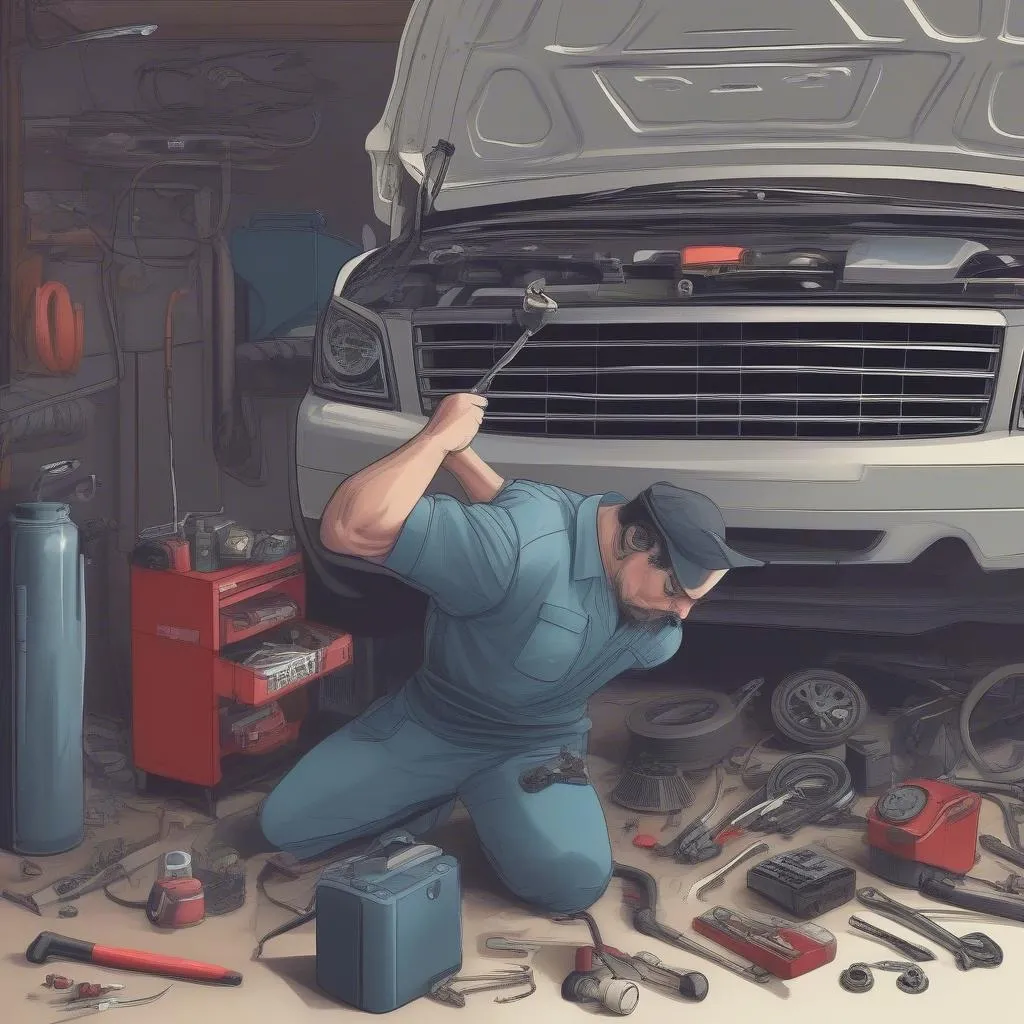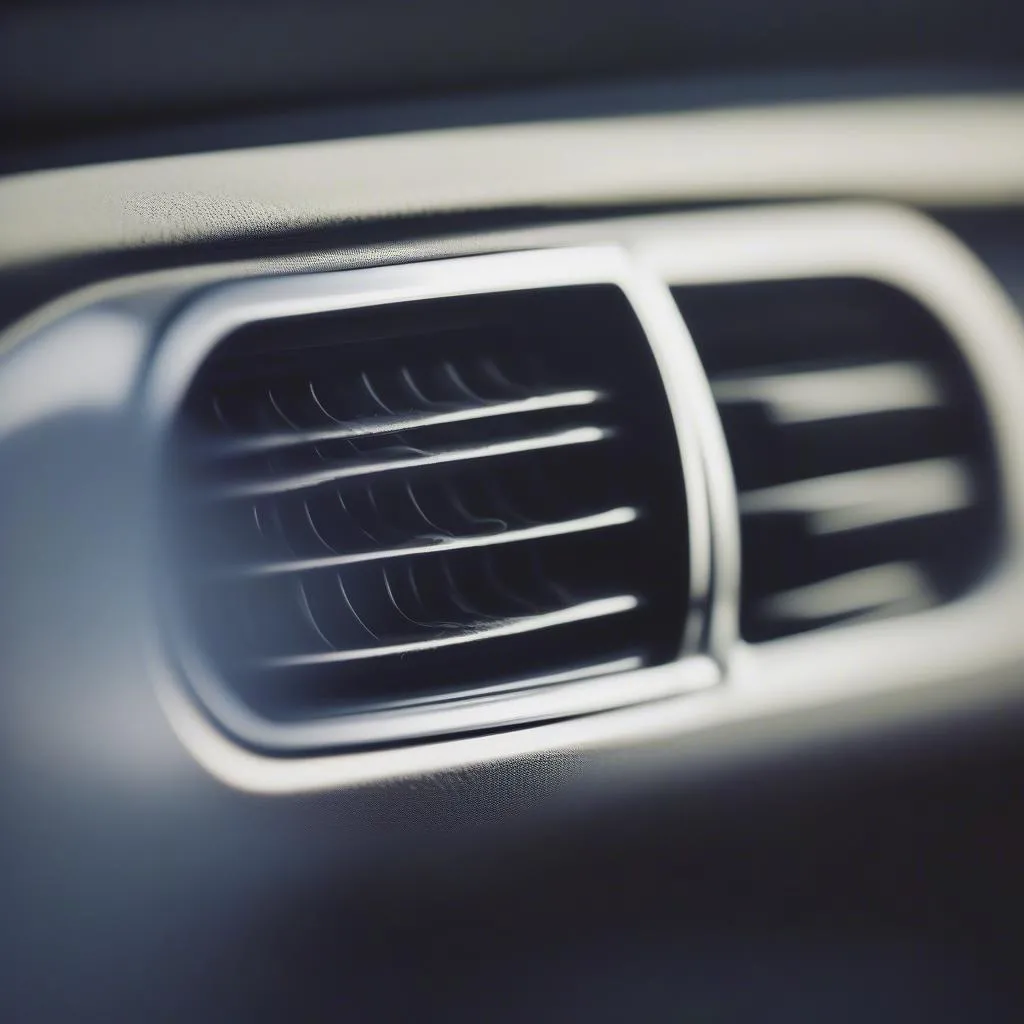Have you ever been stuck in a sweltering car, desperately waiting for the AC to kick in? You crank the fan to the highest setting, hoping for a blast of cool air, but only lukewarm disappointment greets you. “Why is my AC taking so long to get cold?” you might wonder. This frustrating scenario is more common than you think, and luckily, it can often be easily fixed. Let’s dive into the reasons your car AC might be acting up and how to get you back to enjoying cool, comfortable drives.
Why is My AC Taking So Long to Get Cold?
Understanding why your car AC takes a while to cool down requires a little knowledge about how the system works. It’s not magic! Your car’s AC uses a refrigerant, a compressor, and a network of hoses and vents to cool the air. If any part of this intricate system malfunctions, it can lead to less than desirable temperatures inside your car, especially on a scorching summer day in Miami.
From a mechanic’s perspective, a slow-to-cool AC often points to a few usual suspects:
- Low Refrigerant: Just like your refrigerator needs refrigerant to stay cold, so does your car’s AC. A leak in the system can cause the refrigerant level to drop, resulting in weaker cooling.
- Clogged Condenser: Imagine a dusty radiator. Now, picture your AC condenser, responsible for releasing heat, equally choked with dirt and debris. This blockage restricts airflow, reducing cooling efficiency.
- Worn-Out Compressor: The compressor is the heart of your AC system, pumping refrigerant throughout. If it’s failing, the refrigerant won’t circulate properly, and your car will feel more like a sauna than a sanctuary.
Common Questions and Concerns
“My AC blows cold air sometimes, but not always. What gives?” You might be thinking. Intermittent AC issues can be particularly perplexing. Often, they’re linked to electrical gremlins like a faulty relay, a failing blower motor resistor, or even a loose wire.
“How do I know if my car needs more refrigerant?” While it’s best to consult a professional for a proper diagnosis, one telltale sign is lukewarm air even when the AC is on full blast.
Diagnosing the Problem: From DIY Checks to Professional Help
Before you panic, there are a few simple checks you can do yourself. Start by inspecting the area around your AC condenser (usually located at the front of your car). Is it clogged with leaves, bugs, or road grime? If so, carefully cleaning it might just do the trick.
However, if your AC still struggles to keep up, especially on those long drives down California’s Highway 1, it’s time to call in the pros.
The Importance of Dealer Scanners for European Cars
For European car owners, diagnosing AC problems often requires specialized equipment, particularly dealer-level scanners. These sophisticated tools can pinpoint issues with your car’s complex electronic control units (ECUs), providing accurate diagnostic codes that generic scanners might miss.
“Why are dealer scanners so important for European cars?” you ask. European vehicles, especially brands like BMW, Mercedes-Benz, and Audi, are known for their sophisticated electronics and intricate systems. Dealer scanners offer the depth and breadth of information necessary to accurately diagnose and repair these advanced vehicles.
For instance, a Mercedes-Benz C-Class experiencing intermittent AC issues might require a dealer scanner to communicate with the climate control module and pinpoint a faulty sensor or actuator. This level of diagnosis wouldn’t be possible with a generic OBD-II scanner.
Keeping Your Cool: Tips for Preventing Future AC Problems
Prevention is always better than cure, especially when it comes to your car’s AC system. Here are a few simple tips to keep in mind:
- Regular AC Service: Just like you schedule regular oil changes, prioritize annual AC checkups, especially before the summer heat sets in.
- Keep it Clean: Regularly clean the area around your AC condenser to ensure optimal airflow.
- Address Small Issues Promptly: Don’t ignore those early warning signs, like slightly lukewarm air or odd noises. Addressing small issues early can prevent them from snowballing into major (and costly) repairs down the road.
When in Doubt, Seek Professional Help!
Remember, attempting DIY repairs on your car’s AC system can be risky and potentially worsen the problem. If you’re unsure about anything, it’s always best to consult a qualified mechanic, especially one with experience working on your specific car make and model.
 Car AC Repair
Car AC Repair
Similar Issues You Might Encounter
Your car’s AC system is just one part of a larger network ensuring your comfort and safety on the road. Here are a few other issues that might be related to your AC problems or indicate potential issues:
- Heater Not Working: If your heater is also malfunctioning, it could point to a problem with your car’s cooling system overall, such as a faulty thermostat or a coolant leak.
- Unusual Noises: Grinding, squealing, or clicking sounds from your dashboard when you turn on the AC could indicate a failing blower motor or compressor.
- Strange Odors: A musty smell when you turn on the AC could signal mold or mildew growth in the system, while a sweet, syrupy scent might indicate a coolant leak.
 Car AC Vent
Car AC Vent
Need Help with Your Car’s AC? We’re Here for You!
Is your car AC taking its sweet time to cool down? Don’t sweat it! Our team of expert auto technicians is just a message away. We specialize in diagnosing and repairing even the most complex car AC issues, ensuring you stay cool and comfortable behind the wheel. Contact us on WhatsApp at +84767531508 for prompt and reliable assistance with your car’s AC system.
You might also find these articles helpful:
We’re here to answer all your car-related questions. Feel free to leave a comment below or browse our website for more informative articles about car maintenance, repair, and everything in between.
